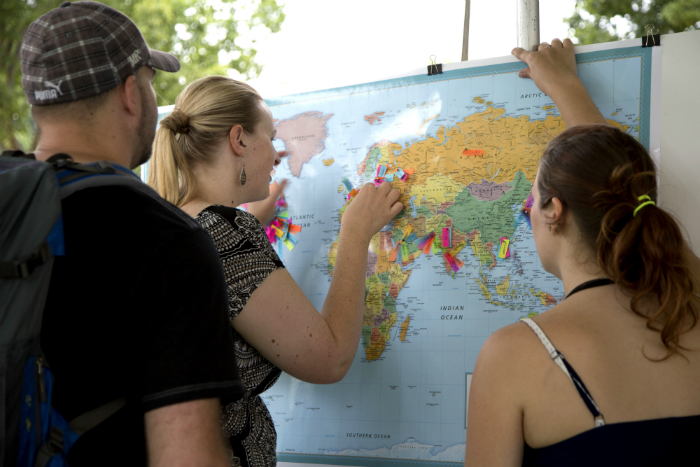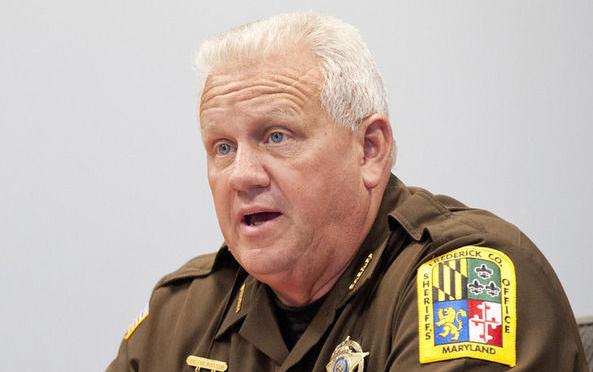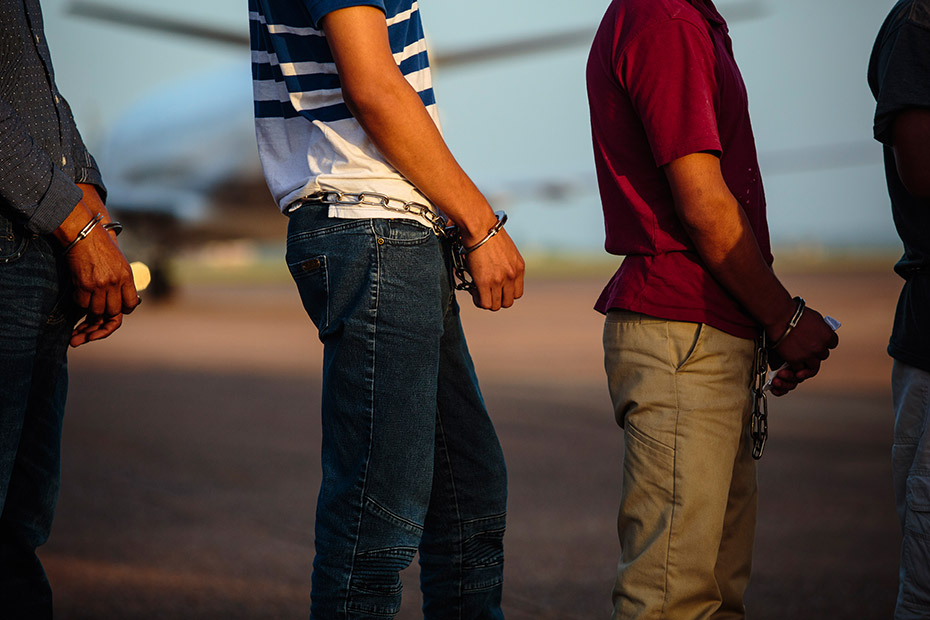
 |
When fifteen-year-old Maribel Rivera sustains a terrible injury, the Riveras leave behind a comfortable life in Mexico and risk everything to come to the United States so that Maribel can have the care she needs. Once they arrive, it’s not long before Maribel attracts the attention of Mayor Toro, the son of one of their new neighbors, who sees a kindred spirit in this beautiful, damaged outsider. Their love story sets in motion events that will have profound repercussions for everyone involved. Here Henríquez seamlessly interweaves the story of these star-crossed lovers, and of the Rivera and Toro families, with the testimonials of men and women who have come to the United States from all over Latin America and offers a resonant new definition of what it means to be Americans. |

|
www.youtube.com
Rich Fahle interviews author Cristina Henríquez about her novel, The Book of Unknown Americans at Miami Book Fair International 2014. Watch more interviews at https ... | ||
|
www.nytimes.com
In Cristina Henríquez’s “The Book of Unknown Americans,” an array of characters from Latin America talk directly about their reasons for coming to ... | ||













Mariana has toted her two children from Colombia to New York City to indulge her husband's whim. But when he abruptly abandons his family, she must rely on her own imagination and courage, and that of her remarkable children to survive.

A family of Irish immigrants adjust to life on the mean streets of Hell's Kitchen while also grieving the death of a child.
Explores the impact of the Trump administration’s “zero tolerance” policy on minors at the border.

Seeking the promise of America, a young woman, Sayra, joins her father on an odyssey to cross the gauntlet of the Latin American countryside.
The true story of Jaime Escalante, the East Los Angeles mathematics teacher who challenges the system and the stereotypes to raise the standard of life for his inner-city students.

When the death of his grandmother leaves young Carlitos alone; he takes his fate into his own hands and heads north across the border to find his mother.

A simmering drama about a college professor and recent widower, Walter Vale, who discovers a pair of homeless, illegal aliens living in his New York apartment.

A recent immigrant to America falls prey to a charming but wicked man who forces her into prostitution.

Kanopy video streaming service immigration film portal. FREDERICK COUNTY PUBLIC LIBRARY CARD REQUIRED.

From award-winning actress and political activist America Ferrera comes a vibrant and varied collection of first-person accounts from prominent figures about the experience of growing up between cultures.

From the publisher: This volume examines the history of immigration and immigrant-founded ethnicity as well as the evolution of America out of its diverse ethnic and racial roots.
From Publishers Weekly: American Book Award winning writer and poet Urrea tracks the paths that 26 Mexican men took from their home state of Veracruz all the way norte.
From the publisher: From an award-winning novelist and sought-after public speaker, an eye-opening memoir about life before and after illegally emigrating from Mexico to the United States.
From Publishers Weekly: Bringing in "the world's best and brightest" is critical to the economy, [Wucker] contends, providing the high-skilled workers and links to foreign markets that America needs to grow and maintain its global competitiveness.

A Nation of Nations follows the lives of a few immigrants to Fairfax County over recent decades as they gradually "Americanize." These families have stories that illustrate common immigrant themes: friction between minorities, economic competition and entrepreneurship, and racial and cultural stereotyping.
From the publisher: Writing from his own heartfelt perspective as an immigrant, Jorge Ramos listens to and explores stories of dozens of immigrants who decided to change their lives and risk everything in order to pursue a better, freer, and opportunity-filled future as citizens of the United States.
Three Phoenix teenagers scraped together less than $1,000 and built a robot out of scavenged parts to enter the Marine Advanced Technology Education Robotics Competition, and against all odds . . . they won!

From the publisher: Structured around the forty questions Luiselli translates and asks undocumented Latin-American children facing deportation, Tell Me How It Ends humanizes these young migrants and highlights the contradiction of the idea of America as a fiction for immigrants with the reality of racism and fear--both here and back home.
1. How does Alma’s perspective in the novel’s first chapter illustrate her and her family’s hopes for their new life in America? Take another look at her statement after the trip to the gas station: “The three of us started toward the road, doubling back in the direction from which we had come, heading toward home” (11). What are the meanings of “home” here, and how does this scene show how America meets and differs from the Riveras’ expectations of it?
2. Mayor describes how he’s bullied at school and his general feelings of not fitting in. How do you think this draws him to Maribel? What do they have in common that perhaps those around them, including their parents, cannot see on the surface?
3. How is the scene where the Riveras sit down for a dinner of oatmeal a turning point for the family and for the book? Discuss the role of food in the novel, especially how it evokes memories of home and establishes a sense of community. Are there any other cultural values or traditions that do the same thing?
4. What are some key differences in the way that the women in the novel respond to challenges of assimilation compared to the men? How does Alma’s point of view highlight these differences?
5. What brings Alma and Celia together as neighbors and friends, and how does their relationship change by the end of the book?
6. How would you describe the atmosphere of the impromptu Christmas party in the Toros’ apartment (p. 137)? What brings the residents of the building together, as a group and in more intimate settings? Why do you think Cristina Henríquez brought all the characters together during this particular holiday?
7. Alma and Mayor are the primary narrators of the book, yet they have very different voices and perspectives. How does pairing these points of view affect the telling of this story, even as they are punctuated by the voices of the neighbors in Redwood Apartments? And how does the chorus of voices affect this main story and pose larger questions of immigration and the Latino experience in the United States?
8. Were you surprised that the book takes place in Newark, Delaware, rather than in the larger Latin American communities of Florida, New York, Texas, or California? What does this setting suggest about immigrant families like the Riveras and the Toros across the country? Do you feel differently about the immigration debate now raging in the United States after reading this book?
9. Do you, the members of your family, or your friends have stories of moving to another country to start a new life? Did any of the stories in the novel resonate with those you know?
10. How does the final chapter, told in Arturo’s voice, influence your understanding of what he felt about America? What do you make of how he ends his narrative, “I loved this country,” and that it is the last line of the book (286)?
https://latamuntram.wordpress.com/cv-page/october-the-book-of-unknown-americans/
Border Charity Addresses for Donations
Humane Borders Keeps water stations in the desert
PO Box 27024
Tuscson, AZ 85726
humaneborders@gainusa.com
preferred method: PayPal through website
www.humaneborders.org
Kino Border Initiative Operates sour kitchen and shelters in Mexico
PO Box 159
Nogales, AZ 85628-0159
Mail donations directly or through Paypal from website
www.kinoborderinitiative.org/
Coalicion De Derechos Humanos Locates missing migrants, and educates migrants on workers rights
Donate through website
www.derechoshumanosaz.net/get-involved/donate-2
Frederick Community College prohibits discrimination against any person on the basis of age, ancestry, citizenship status, color, creed, ethnicity, gender identity and expression, genetic information, marital status, mental or physical disability, national origin, race, religious affiliation, sex, sexual orientation, or veteran status in its activities, admissions, educational programs, and employment. See our Privacy Notice which outlines how we collect, use, and protect your personal information when you interact with our websites, mobile apps, and other online platforms.